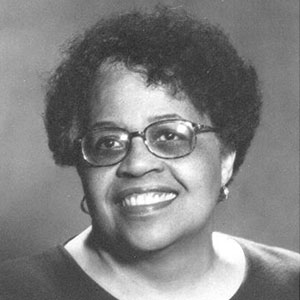Margaret Sellers Walker Morris
By Mary McLoughlin
Life Dates: b. September 28, 1935, d. September 20, 2020
Full Name: Margaret Elizabeth Sellers Walker (Regular) Morris
Birthplace: Pendleton, SC
Tags: Education, Government Service
In 1980 when Margaret Sellers Walker was appointed head of personnel, she became the first woman and the first African American to head a major division of the Michigan Department of Natural Resources (DNR). At the time, the DNR oversaw hundreds of complex jobs—everything from forest fire fighting in Northern Michigan to garbage dumping in rural farming counties–and regulated everything from air and water pollution to fishing and hunting, from national parks and preserves to oil and gas extraction, from forestry to recreational boating. The DNR affected every citizen’s life and had many critics. Compound that with the department’s internal problems: it was about to be severely downsized. Employees already feeling unappreciated and defensive now were threatened with losing their jobs.
Walker’s hiring was experienced by the predominantly white, male-dominated department as a further blow to their esteem. Glen Sheppard, editor of the North Woods Call, reported that she began her six-year tenure as the DNR’s Director of Personnel with a work force who greeted her selection with smirks, racist remarks and almost universal contempt. Not only was the new director a black woman, she also came from Michigan’s largest urban center: Detroit. Conventional wisdom in the DNR held that conservation was man’s work— preferably white men, hunters, fishermen and non-Detroiters. Everybody (in the department, at least) knew that. But Sheppard claimed that Walker proved “everyone who knew that wrong.”
She did a stellar job directing the traditional personnel and payroll activities for 2,200 full-time employees, but also oversaw, training, affirmative action, labor relations and managed the DNR Academy, a training academy for mid-level managers. She modernized and updated every aspect of the department. Eventually even the department’s most cynical, hard-nosed veteran field men held her in higher esteem than they did any other division chief. They regarded her as an extremely competent, honest, courageous professional. They credited her with handling all aspects of the job from the most mundane to the most complex problems of field personnel with fairness, integrity and intelligence. In the end, “the most crusty field bosses, men who earned their stripes and bars in the woods, in an all white world, regarded Sellers as their most reliable useful ally in Lansing.”
Her dramatic accomplishment at the DNR served Walker well as she took on a series of progressively more demanding professional posts. She left the DNR for the City of Grand Rapids where she was Director of Human Resources. After a year she was promoted to Assistant City Manager for Administrative and Cultural Services. In that position, she provided executive direction for Human Resources, Labor Relations, Management Information Systems, Equal Opportunity, Building Operations, the City Clerk’s Office, the Public Library and the Public Museum. According to the Grand Rapids Press, “Sellers transformed the office into an expanded Human Resources Department that merged
the city’s personnel, employee development and risk management departments. She also initiated the City’s current Supervisors Training Program to help managers sharpen their skills and implemented the Employee Recognition Program to award outstanding job performance.” After six years with the City of Grand Rapids, Walker became an assistant professor at Grand Valley State University in the School of Public and Nonprofit Administration, where she taught students what she had learned in government employment.
Sources
This biography can also be found in the Spring 2005 GGRWHC Newsletter.
Margaret Sellers Walker Michigan Women’s Hall of Fame Biography

